Independent Review (PBS) - Responsibilities of the Convenor in the Engagement and Remuneration of Reviewers
Page last updated: 20 January 2018
The Convenor must ensure that independent and suitable reviewers are engaged in an efficient manner according to these guidelines. The strict application of these guidelines will ensure that reviews are professionally and independently conducted and that this is recognised and accepted by all stakeholders.
Timeframes
It is essential that the Convenor acts in a timely and efficient manner as per the Timelines for the Independent Review (PBS) to select and contract an independent and qualified reviewer.
Preparation for Reviews
The Convenor is required to select appropriately qualified and experienced Reviewer(s) to conduct the Independent Review. The Convenor may select appropriate reviewers from the various fields of expertise including, but not limited to:
- clinical pharmacology;
- epidemiology;
- pharmacoepidemiology;
- health economics;
- biostatistics; and
- internal medicine subspecialties.
Independence
An essential criterion for the selection of reviewers is independence. The Australia-United States Free Trade Agreement (AUSFTA) & the Pharmaceutical Benefits Scheme (PBS) Statement on the Implementation of Australia’s AUSFTA Commitments PDF 88KB) by the then Minister of Health and Ageing in February 2005 states that the independent review process will be independent of the sponsor, the Pharmaceutical Benefits Advisory Committee (PBAC) and of the staff of, or contractors of the Department of Health.
The Independent Review (PBS) Conflict of Interest Guidelines and Declaration for Reviewers document (PDF 47 KB) sets out clear guidelines and examples of potential conflicts of interest. The Convenor is required to utilise this documentation and undertake a full and proper assessment of a prospective reviewer’s declaration to ensure independence and preclude any conflict of interest prior to contractual arrangements being entered into with a particular reviewer.
If a reviewer informs the Convenor during the course of a review that a conflict has arisen in regard to a matter that is being considered or is to be considered in the review, the Convenor must undertake a full and proper assessment of the conflict and determine what action, if any, needs to be taken in the circumstances.
All Conflict of Interest Declarations and any disclosures, consents, agreements, and exclusions arising out of correspondence and/or discussions relating to conflict of interest and the Declaration must be recorded and kept on file by the Convenor.
It may also be appropriate to undertake independent research on prospective reviewers to ascertain if there is information on the public record that has not been made known to the Convenor or staff of the Independent Review (PBS). Discussions with potential reviewers will also assist in determining independence.
Relevant Expertise
The second criterion for the selection of reviewers is recognised expertise in the issue(s) in dispute as identified in a Sponsor’s application for review.
If there are difficulties in finding a reviewer with the required expertise the Convenor may seek advice from one or more of the following office holders to discuss both the required expertise and obtain advice on suitable reviewers who could conduct the review process.
Office holder
- PBAC Chair
- National Health and Medical Research Council Chief Executive Officer
- Senior National Medicines Policy Adviser
- TGA Chief Medical Adviser
- Chief Medical Officer
- First Assistant Secretary in the Department of Health that has policy responsibility for the administration of the PBS
If a suitable reviewer cannot be identified, it may be useful to approach academic institutions such as:
- School of Population and Global Health, University of Melbourne;
- Centre for Health Economics, Monash University;
- Discipline of Clinical Pharmacology, School of Medical Practice and Public Health, University of Newcastle;
- School of Economics, University of New South Wales;
- Pharmaceutical Medicine and Drug Development Program, University of New South Wales;
- Centre for Health Economics Research Evaluation (CHERE), University of Technology, Sydney; and
- Faculty of Pharmacy and Pharmaceutical Sciences, Monash University.
This list is not exhaustive.
In addition, where specialist clinical advice is required, it may be useful to approach the Royal Australasian College of Physicians, or other specialist colleges as appropriate.
It should be noted that because of the nature of the work involved in preparing or evaluating submissions to PBAC, persons with the most appropriate expertise may not necessarily have an extensive publication record or hold a senior academic position. A degree in a relevant related discipline combined with appropriate experience may provide relevant expertise.
Care needs to be taken in considering the engagement of representatives from specific disease-related interest groups as these organisations may have an interest in the outcome of the review.
Use of Secondary Reviewers
In circumstances in which there are disparate issues in contention or if a reviewer identifies issues subject to review that s/he believes are outside his or her areas of expertise, the Convenor may decide to contract a Secondary Reviewer. In such instances the Convenor must ensure that the Secondary Reviewer works in conjunction with, and not independently of, the Primary Reviewer, who will retain the overall responsibility for the timely delivery of the review.
Contract Management
The Convenor is responsible for organising the contractual arrangements with reviewers and for contract management during the course of reviews.
In finalising the arrangements to engage a selected reviewer the Convenor must use the Contract in relation to Services for the Independent Review (PBS) (the reviewer contract) and the relevant timeframes.
The Convenor may not change the clauses of the reviewer contract without the prior approval of the Contract Manager. The Convenor must only make the necessary insertions and changes to the Schedule Items of the reviewer contract to specify details relevant to the particular review. The Contractor must not make major or substantive changes to the Schedule Items contained in the reviewer contract without the prior approval of the Contract Manager.
The remuneration of the reviewer will be determined by the Convenor, up to a maximum
amount, as determined from time to time by the Secretary of the Department of Health.



